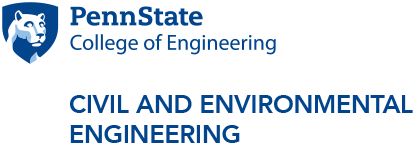CEE Seminar Series: Megan Konar
The recording for this seminar is now available.
Konar will be delivering two "mini-talks" in her seminar, with a small Q&A session in between. The abstract for each can be found below. Registration is required.
Abstract #1: Food flows between counties in the United States
Food consumption and production are separated in space through flows of food along complex supply chains. These food supply chains are critical to our food security, making it important to evaluate them. However, detailed spatial information on food flows within countries is rare. The goal of this talk is to estimate food flows between all county pairs within the United States. To do this, Konar develops the Food Flow Model, a data-driven methodology to estimate spatially explicit food flows. The Food Flow Model integrates machine learning, network properties, production and consumption statistics, mass balance constraints, and linear programming. Specifically, Konar downscales empirical information on food flows between 132 Freight Analysis Framework locations (17,292 potential links) to the 3,142 counties and county-equivalents of the United States (9,869,022 potential links). Subnational food flow estimates can be used in future work to improve our understanding of vulnerabilities within a national food supply chain, determine critical infrastructures, and enable spatially detailed footprint assessments.
Abstract #2. A complex network framework for the efficiency and resilience trade-off in food trade
Global food trade is crucial for food security and availability. Trade is typically optimized to promote efficiency, whereas resilience is increasingly being recognized as another important objective. However, it is not clear if prioritizing resilience comes at the expense of efficiency or if the two objectives can be promoted simultaneously. Konar develops a complex network framework to assess the relationship between resilience and efficiency of food trade for the last half century. There is a competitive relationship between efficiency and resilience when only network topology is considered. However, a cooperative relationship between efficiency and resilience exists when the intensity of trade connections is accounted for. Policy makers can use this framework to evaluate the relationship between efficiency and resilience in critical supply chains.
Biography: Megan Konar is an associate professor in the Department of Civil and Environmental Engineering at the University of Illinois at Urbana-Champaign. Konar's research focuses on the intersection of water, food, and trade. Her research is interdisciplinary and draws from hydrology, environmental science, and economics. Konar received a doctoral degree in civil and environmental engineering from Princeton University in 2012, a master's degree in water science, policy and management from Oxford University in 2005, and a bachelor's degree in conservation and resource studies from UC Berkeley in 2002. She was recently awarded the National Science Foundation CAREER Award and Early Career Award from AGU Hydrologic Sciences.
Additional Information:
Event Contact: Tim Schley




